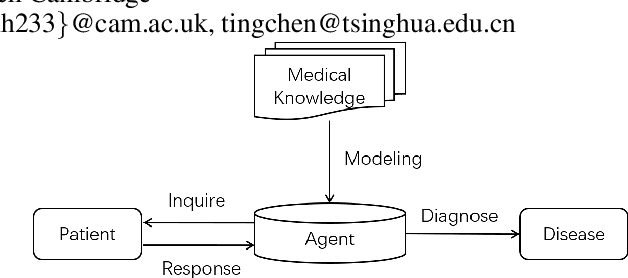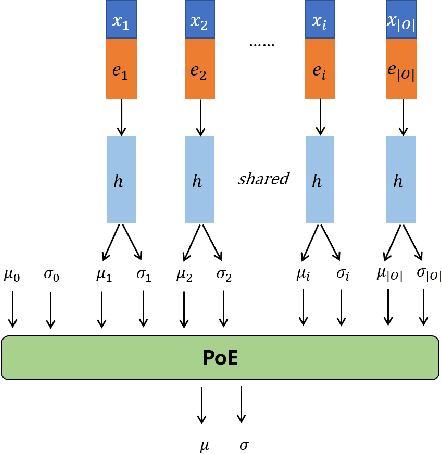FIT: a Fast and Accurate Framework for Solving Medical Inquiring and Diagnosing Tasks
Paper and Code
Dec 02, 2020



Automatic self-diagnosis provides low-cost and accessible healthcare via an agent that queries the patient and makes predictions about possible diseases. From a machine learning perspective, symptom-based self-diagnosis can be viewed as a sequential feature selection and classification problem. Reinforcement learning methods have shown good performance in this task but often suffer from large search spaces and costly training. To address these problems, we propose a competitive framework, called FIT, which uses an information-theoretic reward to determine what data to collect next. FIT improves over previous information-based approaches by using a multimodal variational autoencoder (MVAE) model and a two-step sampling strategy for disease prediction. Furthermore, we propose novel methods to substantially reduce the computational cost of FIT to a level that is acceptable for practical online self-diagnosis. Our results in two simulated datasets show that FIT can effectively deal with large search space problems, outperforming existing baselines. Moreover, using two medical datasets, we show that FIT is a competitive alternative in real-world settings.
 Add to Chrome
Add to Chrome Add to Firefox
Add to Firefox Add to Edge
Add to Edge